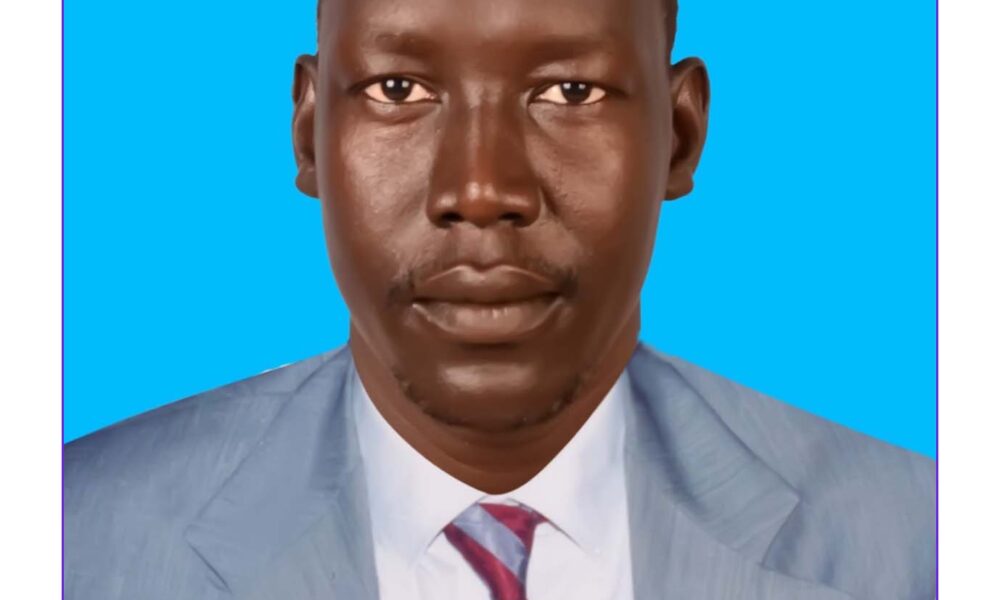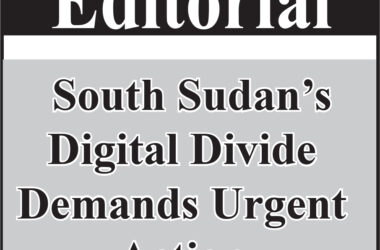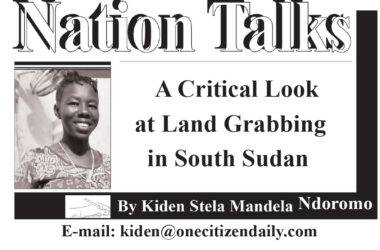By Bek Dhuorjang Chol
Summary
This article examines the challenges and opportunities in integrating war veterans and wounded heroes into the national development process of South Sudan.
It analyses the gap between the promises made to veterans during the liberation struggle and their actual fulfilment, emphasizing the importance of a comprehensive strategy for their societal integration. Drawing on international examples from China, Cuba, the US, Russia, and South Africa, the article proposes actionable commitments, including the establishment of veteran affairs institutions, legal enforcement of rights, and economic integration programs. It advocates for benefiting from veterans’ experiences and patriotism in nation-building, aiming to transform South Sudan’s gratitude into tangible support and national unity.
Introduction
In the heart of Africa, South Sudan stands as a testament to the resilience and courage of its people, particularly its war veterans and wounded heroes who have endured the effect of conflict in their quest for freedom and dignity, stand at the heart of every nation’s journey towards healing and reconstruction. As the youngest nation in Africa, South Sudan faces challenges in fulfilling the promises made to its veterans during the liberation struggle. Engaging war veterans and wounded heroes and heroines is vital for post-conflict societies such as South Sudan. The SPLM/A made promises to its soldiers during the liberation struggle, including the use of oil revenues to transform the agricultural sector and provide various benefits to war-wounded heroes and heroines. The promises made during the liberation struggle, including access to education, land, medical treatment, and employment opportunities for those who survived and their children, which reflect a commitment to honour the sacrifices of those who fought for independence. However, the recent demonstrations turned violent for medical allowances cast a stark light on the gap between commitments made and fulfilled, indicating the urgent need for a comprehensive strategy to integrate these individuals into society. This integration is not just a ceremonial gesture but a vital step in national healing and rebuilding. By looking into the experiences and drawing lessons from countries like China, Cuba, the United States, Russia, and South Africa, the SPLM and South Sudan are at a critical juncture tasked with transforming their gratitude into actionable commitments that truly honour the sacrifices of those who fought for the nation’s independence, hence they can find innovative ways to bridge this gap. Such strategies aim not only to honour the sacrifices of their liberation fighters but also to harness their potential in shaping the nation’s future. Each of these countries has a unique approach to its veteran and wounded heroes’ affairs. This article seeks to shed light on the importance of engaging war veterans in the nation-building process, proposing a pathway that ensures their welfare and dignity while leveraging their contribution to forge a rejuvenated party and country, the Republic of South Sudan.
Ruling parties often seek to harness their experiences and patriotism for political purposes, framing their engagement as a means of honouring their service while simultaneously advancing national welfare objectives. Ruling parties engage war veterans and wounded heroes for a variety of reasons, including strengthening their legitimacy, cultivating a sense of national unity, and benefiting from veterans’ expertise for policy implementation.
China and Cuba: A Model of Comprehensive Support
China has established a strong legal and policy framework to support veterans, including laws on veterans’ welfare and employment. China has a long history of honouring its military veterans, with the government providing various forms of support. Chinese veterans are usually provided with pensions, healthcare, and employment assistance. The government has also established laws and regulations to ensure that veterans are respected and receive the benefits they are entitled to. China’s approach to veteran engagement is characterized by a structured and institutionalized system of support, which is integrated into the broader social welfare and economic development strategies of the country.
Similarly, Cuba, with its revolutionary history, has a tradition of integrating veterans into society and politics. Cuban veterans have been provided with benefits similar to those promised by the SPLM/A, including healthcare, education, and housing. The Cuban government has also encouraged the active participation of veterans in the Communist Party and at various levels of government, recognizing their contributions to the country’s independence and socialist construction. Both China and Cuba have systems in place to ensure that veterans are not only supported but also actively engaged in the development of the country. In contrast, South Sudan faces challenges in delivering on its promises to veterans, which may be due to a combination of factors such as political instability, economic constraints, and the aftermath of prolonged conflict. Both China and Cuba emphasize the economic and social reintegration of veterans, recognizing that true appreciation extends beyond symbolic gestures. Employment opportunities, vocational training, and the active encouragement of veterans’ participation in political processes and decision-making are critical. These nations understand that veterans, as experienced and disciplined members of society, can significantly contribute to nation-building efforts if given the right opportunities and support.
Both China and Cuba offer extensive social support networks for veterans, including healthcare, education, and housing subsidies. China’s Veterans Service Centres provide counselling, vocational training, and assistance with employment and entrepreneurship. Cuba’s system of Veterans Care Clinics offers specialized medical services and rehabilitation programs. China prioritizes veterans in employment, offering preferential treatment in recruitment for civil service, public security, and state-owned enterprises. Cuba provides vocational training and employment assistance to veterans, facilitating their integration into the workforce. China and Cuba commemorate their veterans through various means, including official holidays, memorials, and ceremonies. Public recognition of veterans’ contributions enhances their social status and promotes a sense of pride and belonging.
Learning from Other Nations: The Various Fields of Veteran Engagement
The United States and Russia, despite their differing political ideologies, both utilize veteran engagement as a means to strengthen national unity and pride. For example, in the United States, both Republican and Democratic administrations have sought to demonstrate their commitment to veterans’ issues through initiatives such as the Veterans Affairs healthcare system and the Post-9/11 GI Bill. Similarly, in Russia, President Vladimir Putin’s United Russia party has emphasized the valor and sacrifice of veterans of World War II to reinforce a narrative of Russian exceptionalism and resilience in the face of external threats. It also serves as a potent tool for promoting popular support and legitimizing his regime’s authoritarian policies. Through initiatives like the Veterans’ Affairs healthcare system and commemoration of wartime sacrifices, these countries demonstrate the power of both policy measures and symbolic gestures in honouring veterans.
Engagement Strategies:
Governments employ various strategies to engage war veterans and wounded heroes, ranging from symbolic gestures to substantive policy measures. Symbolic gestures, such as public ceremonies and commemorative events, serve to honour veterans’ contributions and promote a sense of national pride. For instance, in South Africa, the ruling African National Congress (ANC) commemorates the sacrifices of veterans of the anti-apartheid struggle through events like Veterans’ Day, highlighting their role in shaping the nation’s history. In addition to symbolic gestures, ruling parties may also implement concrete policies aimed at improving veterans’ access to healthcare, education, employment, and housing. However, the extent to which these policies effectively address veterans’ needs varies significantly across countries and political contexts. In Zimbabwe, for example, the ruling ZANU-PF party has faced criticism for its selective distribution of land and economic opportunities to former liberation fighters, perpetuating patronage networks and exacerbating socio-economic inequalities. This serves as a cautionary tale for South Sudan. The challenge lies in ensuring that veteran engagement promotes national unity and development rather than aggravating existing divisions.
The Path Ahead: Challenges and Opportunities
As South Sudan looks to the future, the lessons from China, Cuba, and other nations offer both inspiration and caution. The journey towards effective veteran engagement is concerned with challenges, including South Sudan’s economy, heavily reliant on oil revenues, faces instability and uncertainty, limiting resources for veteran support programs. Prioritizing veteran welfare amidst competing demands for development and reconstruction requires careful budget allocation and fiscal management. Weak institutional capacity and governance challenges in South Sudan hinder the effective implementation of veteran support policies. Building institutional capacity and enhancing coordination between government agencies and civil society organizations are essential for delivering comprehensive services to veterans. Reintegrating war veterans and wounded heroes into civilian life requires addressing psychosocial challenges, such as trauma and stigma. Community-based support programs, including counselling, peer support groups, and vocational training, can facilitate successful reintegration and social inclusion. However, these challenges also present opportunities for innovation, collaboration, and the strengthening of national identity.
Recommendations for South Sudan
Drawing from these international examples, South Sudan can forge a path forward that honours its commitments to veterans and war-wounded heroes. Establishing a dedicated institution for veteran affairs, akin to China’s approach, could centralize efforts to address veterans’ needs systematically. Enforcing laws that guarantee veterans’ rights and benefits would provide a stable legal foundation for these efforts. Moreover, creating economic integration programs such as vocational training, employment placement services, and entrepreneurship support, ensuring access to healthcare and education for veterans and their families as promised, potentially through partnerships with international organizations and NGOs, and encouraging veterans’ participation in governance ( political processes and decision-making), recognizing their role in the country’s history and leveraging their experience for nation-building would not only fulfil the promises made but also pull veterans’ potential as agents of change and development. South Sudanese society should celebrate the contributions of veterans, recognizing their role in defending the nation’s sovereignty and independence.
The government should establish a strong internal healthcare insurance system and allocate a specialized hospital in Juba apart from the Military Hospital for the treatment and to ensure that veterans receive specialized care for war-related injuries and disabilities, with a focus on rehabilitation and long-term support.
A call for action
As South Sudan reflects on its journey and the road ahead, the engagement of war veterans and wounded heroes emerges as a cornerstone for sustainable development and unity. By learning from international best practices, the SPLM and the government of South Sudan have a unique opportunity to transform veterans’ engagement from a series of unmet promises into a cornerstone of national development and unity. This requires not only a reassessment of strategies and policies but also a renewed commitment to the values of sacrifice, resilience, and patriotism that these veterans embody. In doing so, South Sudan can ensure that the sacrifices made for independence and peace translate into a prosperous and inclusive future for all its citizens and also lay a strong foundation for the generations to come.
In conclusion, South Sudan stands at a focal point in its history. By embracing a comprehensive and inclusive approach to veteran engagement, informed by global best practices, it can fulfil its obligations to those who have sacrificed for the nation’s freedom. More importantly, it can harness the potential of its veterans to contribute to the country’s stability and development, turning the promises of the past into the foundations for a brighter future.
The author is a lecturer, Public Administration, University of Juba. He can be reached via email at bekchol2017@gmail.com; Tel No. +211929449146



